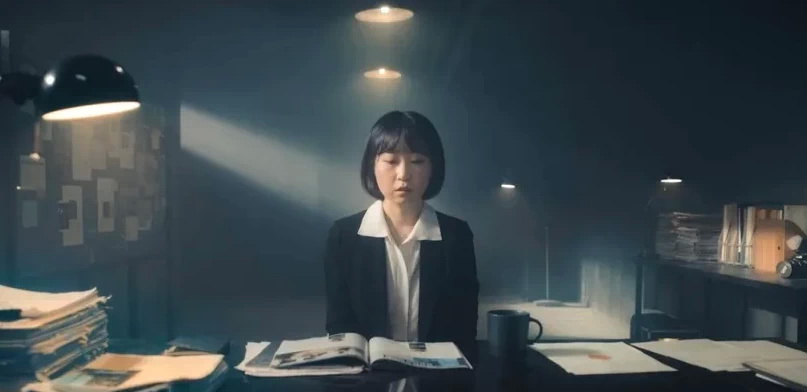Cyber Hell: Exposing An Internet Horror is a Netflix documentary covering the Nth Room case out of Korea that came to light in 2019 and continued on throughout 2020. The horrifying story involved everything from blackmail to rape to child pornography, and had 103 confirmed victims (23 of whom were minors) with likely many more in reality.
Needless to say there’s isn’t exactly a lack of reason for most to be interested in this case, but ultimately the level of intrigue and its core effectiveness depends on your familiarity with the subject and what you’re looking to get out of it.
For the most part, the documentary treats the case as a thriller of sorts, putting the viewer into the timeline of events as they unfold, talking to various involved parties and ultimately focusing on the main players in taking the perpetrators down.
The presentation of all this is mostly excellent aside from a few overdramatic reenactments. It uses the sets effectively to capture the serious and dark tone of the subject matter, and its use of graphics in particular really help embed the viewer in the moment as the interviewees talk about the events. Speaking of which, they almost become characters of their own as the viewer gets to know their stories, with at least my particular interest being centered on ‘Team Flame’, two anonymous female university students who were on this case first whom I had not seen centered before.
Basically, Cyber Hell handles the thriller aspect of the case well, and even though I knew the outcome and much of the backstory, in moments it still gets your blood pumping and makes you want to see these shitheads get caught.
That said, in focusing on ramping up the drama, I also think Cyber Hell sorta shirks the harder task of examining and challenging current norms in Korean society that contributed to these crimes being perpetrated and that help sustain the environment that make it plausible for it to happen again. At its core, it’s a case about society and culture failing women and children, especially those most vulnerable (the poor). Yet the misogyny and victims themselves can at times feel like a bit of an afterthought.
One of the things that I couldn’t get out of my head as they took us through how these women/girls were taken advantage of is how they managed to leverage their shame. The perpetrators bet on the fact that many victims would do the mental calculus and figure that “temporarily” doing horrific things for a “small” audience was a better outcome than having friends and family … and us, involved in their judgment. The perpetrators ended up being right, yet that system is never really evaluated.
Of course, perhaps that’s an unrealistic expectation to put on a documentary about a specific case, but given the shocking subject matter and the dexterity with which the rest of Cyber Hell was handled, it seemed within the realm of possibility that it could be weaved in.
——
While the documentary does stop short of being truly bold, as a whole it’s still very much worth watching, especially for those who are unfamiliar with the details of the case. Continually compelling, Cyber Hell expertly guides viewers through the horrors of the Nth Room case, and at least provides a hell of a catalyst for further discussion.
 Asian Junkie Asian pop. Without discretion.
Asian Junkie Asian pop. Without discretion.

